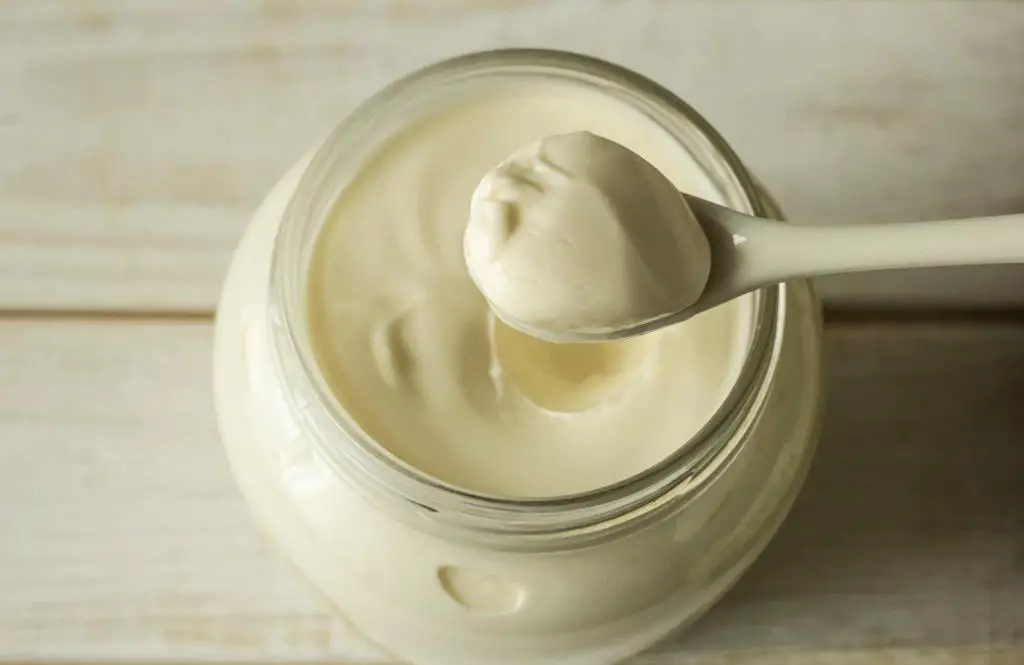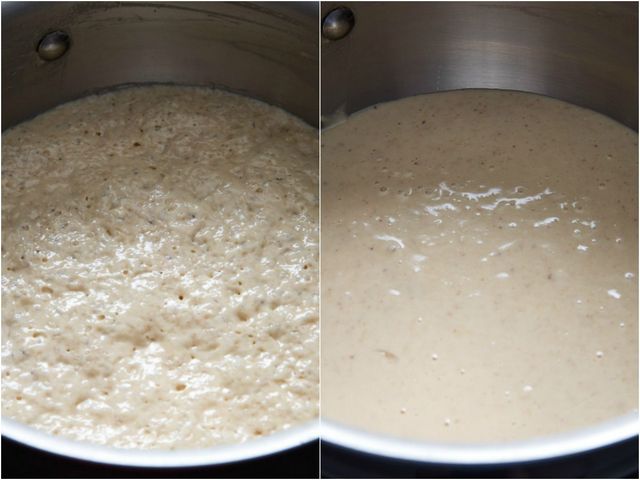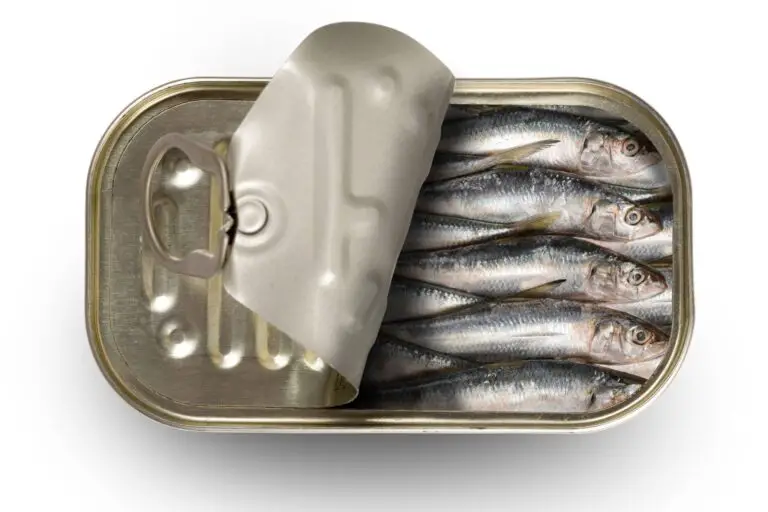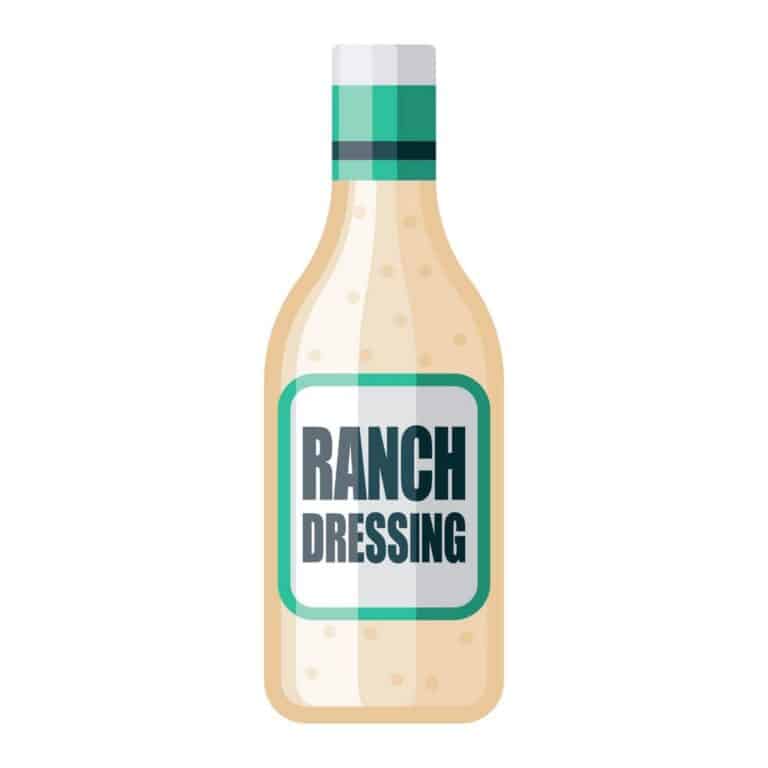Can You Eat Unopened Expired Mayonnaise (or Past Use-by Date)?

Mayonnaise, that humble condiment found in nearly every kitchen, often plays a mysterious role in our culinary adventures. We’ve all been there, staring at a jar tucked away in the fridge, wondering if it has surpassed its prime.
So, can you eat unopened, expired mayonnaise? Yes, you can. The best unopened mayonnaise should generally be discarded after 1 to 2 months past the expiration date.
This article aims to unravel the dilemma surrounding unopened expired mayonnaise, examining the safety, risks, and considerations when contemplating a date with that forgotten jar.
Join us in demystifying the world of unopened expired mayonnaise, because sometimes the answers to life’s pressing questions lie hidden in the unexplored corners of your kitchen. So, should you give that forgotten mayo a second chance, or is it time to bid it a fond farewell? Let’s unravel the truth together.
Introduction to Mayonnaise
Mayonnaise, a culinary workhorse, is made from a harmonious blend of eggs, oil, vinegar, and mustard. This creamy condiment seamlessly integrates into a myriad of dishes, transcending cultural boundaries. Its smooth, velvety texture adds a luscious touch to sandwiches, salads, and sauces, making it a kitchen essential.
Consider the classic BLT or a simple turkey sandwich; mayonnaise, with its savory tang, transforms these everyday bites into indulgent experiences. Its adaptability extends to culinary applications like coleslaw dressing, aioli, and the creamy base for deviled eggs. The magic of mayonnaise lies in its ability to enhance both the texture and flavor of dishes, earning it a permanent spot in households around the globe.
Mayonnaise is more than just a tasty condiment; it is also a sign of culinary creativity and an open canvas for endless possibilities. Its popularity shows how well it works as a flavor enhancer. Mayonnaise can turn ordinary foods into extraordinary treats, encouraging chefs and home cooks to try new things in the kitchen.
Understanding Mayonnaise Expiration and Shelf Life

First, let’s decipher the dates stamped on the jar. Mayonnaise bottles often bear “use-by” or “best-by” labels, indicating the period of optimal quality.
While the “use-by” or “best before” date is a general guideline for peak quality, it doesn’t necessarily mean the mayo transforms into a hazard the next day. The Food and Drug Administration (FDA) states that these dates are about quality, not safety.
After these dates, you need to check the mayonnaise’s condition. Spoilage signs include changes in color, texture, or the emergence of an off-putting odor. To safeguard your health, it’s wise to adhere to food safety guidelines, as expired mayonnaise can harbor harmful bacteria.
To extend the life of your mayo, proper storage is key. Keep it refrigerated, shielded from temperature fluctuations, and steer clear of cross-contamination. Yet, even with the best practices, there’s a limit. Knowing when to bid farewell to a jar can prevent culinary mishaps and ensure every dollop of mayo adds joy without compromising safety.
Can You Eat Unopened, Expired Mayonnaise?
Cracking open a jar of mayonnaise, only to realize it’s past its expiration date, can be a culinary dilemma. But fear not, as the answer lies in understanding the nuances of unopened, expired mayonnaise consumption.
To assess the viability of unopened expired mayonnaise, first consider the type of expiration date listed – “use-by” or “best-by.” The former implies a deadline for peak quality, while the latter suggests a period of optimal taste. If the jar remains unopened and shows no signs of damage, the risk is relatively low. However, it’s vital to be mindful of certain indicators, such as changes in color, texture, or an off-putting odor upon opening.
Table: Indicators of Unopened and Expired Mayonnaise
| Signs of Viability | Potential Risks |
| Sealed, undamaged jar | Minimal health risks |
| “Best-by” date | Taste may diminish |
| No signs of spoilage | Limited bacterial contamination |
In essence, unopened expired mayonnaise can often be enjoyed with minimal risks, provided it passes the sensory checks. However, discretion is key, and if any doubts linger, it’s wise to prioritize safety over a potentially lackluster culinary experience.
Safety Concerns and Health Risks
Diving into the safety concerns surrounding expired mayonnaise reveals the lurking risk of bacterial contamination. Imagine mayonnaise as a thriving environment for bacteria, with its blend of eggs, oil, and other ingredients providing an ideal breeding ground. When the expiration date approaches or is surpassed, these bacteria can multiply, potentially leading to health risks upon consumption.
The potential health risks associated with consuming expired mayonnaise shouldn’t be underestimated. Picture ingesting spoiled mayonnaise; nausea, vomiting, and diarrhea may ensue, symptoms indicative of foodborne illnesses. The microbial growth in past-its-prime mayo poses a real threat to the digestive system, emphasizing the need for caution.
The importance of adhering to food safety guidelines cannot be overstated. Whether it’s refrigeration, proper storage, or recognizing signs of spoilage, these guidelines serve as the compass for navigating the fine line between culinary creativity and health risks. Let’s explore the critical elements in the table below:
Table: Key Food Safety Guidelines for Mayonnaise
| Guideline | Description |
| Refrigeration | Store mayonnaise in the refrigerator at all times. |
| Check for Signs of Spoilage | Look for changes in color, texture, or smell. |
| Discard If in Doubt | When unsure, prioritize safety and discard. |
These guidelines act as a shield, ensuring that the joy of mayonnaise in culinary creations doesn’t come at the expense of well-being.
Extending Mayonnaise Lifespan
There are several ways to extend mayonnaise’s lifespan. It involves a careful storage strategy. By following a few simple tips, you can ensure that your mayo stays fresh and safe for an extended period of time.
Table: Tips for Proper Mayonnaise Storage
| Storage Tip | Description |
| Refrigeration | Store mayonnaise in the refrigerator at temperatures below 50°F. |
| Temperature Control | Keep the fridge consistently cool to prevent bacterial growth. |
| Airtight Containers | Transfer mayonnaise to airtight containers to preserve freshness. |
| Store Away from Heat Sources | Shield mayo from heat sources to maintain its quality. |
Refrigeration emerges as the primary guardian, maintaining temperatures that thwart bacterial proliferation. Additionally, consider the placement within the refrigerator—mayo thrives in the cool zone, away from the warmth of the door. By adopting these practices and steering clear of cross-contamination, you fortify your mayo fortress, ensuring it stands the test of time and taste.
Conclusion
In conclusion, the safety of consuming unopened expired mayonnaise hinges on several factors, and understanding the guidelines surrounding mayo expiration dates is crucial for maintaining food safety. The shelf life of unopened mayonnaise can extend beyond its printed date, but it’s essential to exercise caution and follow certain considerations.
While unopened expired mayo might still be safe to eat in some cases, it’s important to inspect the product thoroughly. Any signs of spoilage, such as an off smell, unusual color changes, or an altered texture, should be regarded as red flags, and consuming such products is not advisable. The guidelines for mayo expiration dates serve as a helpful reference, but common sense and sensory evaluation are equally important.
When it comes to food safety and unopened, expired condiments, erring on the side of caution is recommended. If there is any doubt about the quality or safety of unopened expired mayo, it’s best to discard it rather than risk potential health issues.
As consumers, staying informed about proper storage conditions and recognizing the signs of spoilage are integral to making informed decisions about the consumption of unopened, expired products. In the realm of unopened expired mayo safety, vigilance, and knowledge are key to enjoying food safely and responsibly.
FAQs on Shelf Life of Unopened Mayonnaise
Can you get sick from eating expired mayonnaise?
Yes, consuming expired mayonnaise can lead to foodborne illnesses. Bacterial contamination increases over time, posing health risks.
How long does mayonnaise last after the expiration date?
Mayonnaise typically lasts 1-2 months past its expiration date if stored properly. However, quality may diminish over time.
Are there any risks to using expired condiments?
Using expired condiments can pose health risks, as they may harbor harmful bacteria or lose their intended quality.
What happens if you eat spoiled mayonnaise?
Eating spoiled mayonnaise can cause food poisoning symptoms like nausea, vomiting, and diarrhea due to harmful bacteria.
Can you use expired mayonnaise in recipes?
It’s not recommended. Expired mayonnaise may compromise the taste and safety of your dishes.
Is it safe to eat mayonnaise past its expiration date?
Consuming mayonnaise past its expiration date is risky, as it may contain harmful bacteria that can cause illness.






